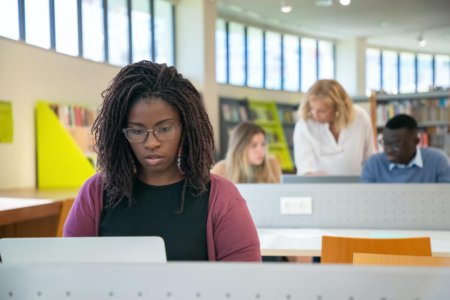
The Biden administration will no longer defend an H-1B visa rule from the Trump administration that would have given visa preferences to individuals earning higher salaries.
The H-1B is a highly coveted work visa for many international graduates in the US. It allows employers or companies in the US to hire international graduates with a specific speciality (or its equivalent) to work in the country.
The H-1B visa holder can only work for the sponsoring employer and enables international graduates to work in the US for three years at least.
The H-1B visa selection system
On Jan. 8, 2021, the Trump administration published a regulation as “final” to end the H-1B visa lottery and replace it with a system that sorts H-1B petitions by the highest to lowest salary.
US Citizenship and Immigration Services (USCIS) uses the lottery when companies file more H-1B visa applications than the annual limit of 85,000 (65,000 plus a 20,000-exemption for advance degree holders from US universities). In 2021, USCIS received more than 300,000 H-1B registrations for FY 2022.
Initially, the Biden administration was defending the immigration rule until they decided to go against it recently.
How will this affect international students in the US?
H-1B petitions are essential because they typically represent the only practical way for international students to work long-term in the US.
The previous H-1B rule would be an international student’s bane. Employers would naturally offer individuals with less experience in the US labour market lower salaries (Level 1 under the Department of Labor wage level system) than more experienced professionals, said Forbes.
Adopting the rule would lead the US to establish a system that favours senior foreign nationals over young, promising talent, including recent graduates of US universities.
The difficulty of obtaining an H-1B visa has contributed to an increase in Indian students at Canadian universities from 76,075 to over 172,000 between 2016 and 2018.
US universities have lost their Indian graduate students in engineering and computer science, dropping 25%. The evidence indicates the US is losing talent because it is much easier to work after graduation and gain permanent residence in other countries — and the Trump administration’s H-1B regulation would only worsen the issue.










